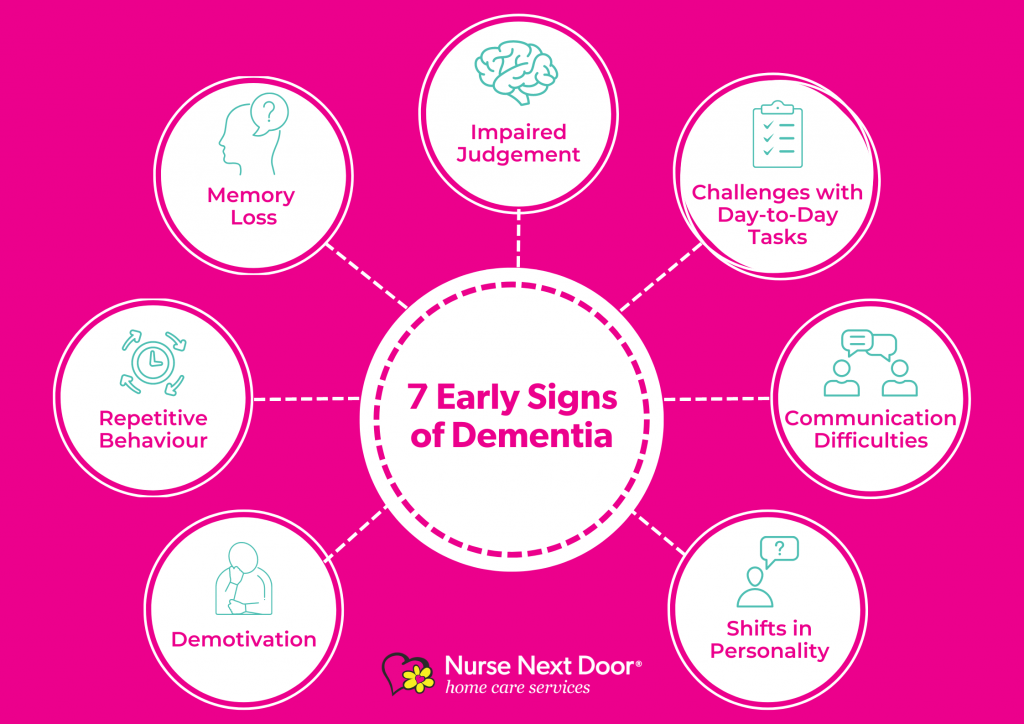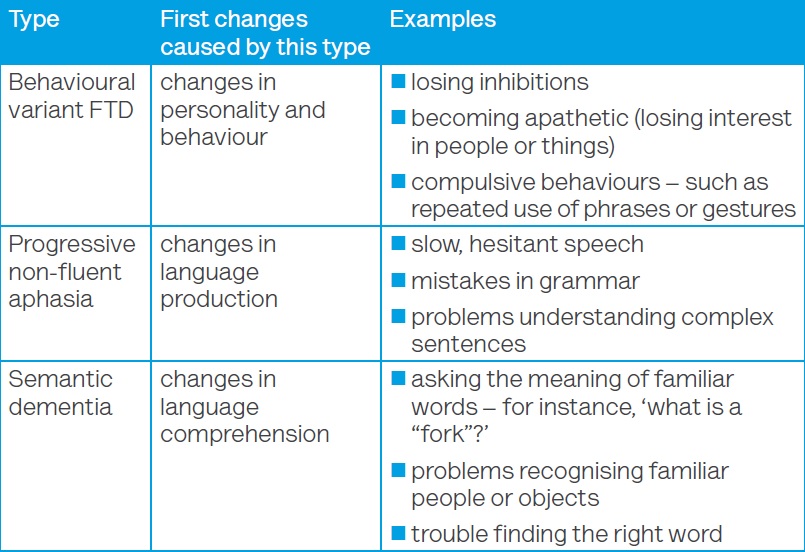Emotional and Behavioral Changes in Frontotemporal Dementia Patients
Emotional and Behavioral Changes in Frontotemporal Dementia Patients
Blog Article
Comprehending the Impact of Mental Deterioration on Day-to-day Live and Caregiving
Mental deterioration impacts day-to-day live in profound ways, impacting not simply those diagnosed but also their caregivers. As cognitive decline progresses, you might observe modifications in communication and routine that challenge both parties. Comprehending these changes is important for maintaining self-respect and interaction. Exactly how do you adapt your caregiving methods to support somebody traversing this complicated trip? The answers might surprise you as we discover the subtleties of this experience.
The Stages of Mental Deterioration and Their Impacts on Daily Life
As you browse the trip of mental deterioration, recognizing its stages can markedly influence just how you take care of everyday life. Dementia generally advances with 3 primary stages: early, middle, and late.
During the middle stage, you'll experience more visible cognitive decrease. Daily jobs might come to be difficult, and keeping your self-reliance might require modifications. Making use of pointers and simplifying your atmosphere can assist.
In the late phase, individuals commonly require significant assistance with day-to-day activities. Preparation for treatment comes to be important, concentrating on comfort and lifestyle. By understanding these stages, you're far better outfitted to react proactively, guaranteeing you or your enjoyed one can navigate the obstacles with self-respect and grace.

Changes in Interaction and Social Interaction
How do modifications in interaction affect your everyday communications as dementia advances? As mental deterioration advancements, you could notice that easy conversations end up being tough. Words might leave you, or you might battle to find the best expressions. This can bring about aggravation for both you and your liked ones. Nonverbal signs, like motions or facial expressions, come to be increasingly crucial.
You may locate it less complicated to attach via these methods as opposed to depending only on talked language. Listening skills can likewise alter; you could find it more challenging to keep in mind or comply with discussions what was just claimed (Frontotemporal Dementia). This can result in misconceptions or feelings of seclusion
Encouraging persistence and creating a helpful environment can aid. Taking part in tasks that promote link, like music or art, can enhance social communications. Remember, maintaining relationships is still feasible; it's practically adjusting to new means of interacting.
Influence on Daily Routines and Activities
While maneuvering day-to-day routines, you'll likely observe that jobs you when finished effortlessly come to be a lot more challenging as mental deterioration progresses. Simple tasks like cooking, clothing, and even bathing might need even more time and initiative. You may find on your own neglecting action in familiar regimens or having a hard time to recall where you positioned items. This can lead to disappointment not just for you, yet likewise for those around you.
Preparation your day can feel overwhelming, making it tougher to stay with a schedule. You may need suggestions for appointments or to take medicines. Adjusting your setting can aid; for instance, labeling things or making use of lists can streamline jobs. Taking part in repeated, structured activities can also offer comfort and a sense of achievement. Keep in mind, it's fine to request assistance. Surrounding yourself with supportive pals or family members can make handling these adjustments a little bit easier.
Psychological and Behavior Difficulties
Steering through day-to-day regimens can cause not just practical challenges, however behavior and additionally emotional ones. You may discover changes in mood, such as raised anxiety or disappointment, which can come from complication or trouble in completing tasks. As you navigate these moments, it is important to recognize that your enjoyed one may express their sensations through behaviors like agitation or withdrawal.
These psychological actions can be uncertain and may occur without warning, leaving you both feeling bewildered. You may locate that acquainted environments or regimens can aid minimize anxiety, however keeping patience ends up being substantial. It is necessary to confirm their feelings, even if you do not totally comprehend them.
The Duty of Caregivers in Supporting Individuals With Mental Deterioration
As a caregiver, you play a necessary duty in offering psychological support for individuals with mental deterioration. Developing daily treatment regimens can create a sense of security and comfort, assisting to ease their stress and anxiety. By understanding their requirements and utilizing reliable strategies, you can substantially boost their quality of life.
Emotional Support Methods
When looking after a person with dementia, understanding the emotional landscape is essential for providing effective support. You'll typically discover that persistence and compassion go a lengthy means. Confirm their feelings; if they express complication or frustration, acknowledge it without rejecting their feelings. Straightforward motions, like holding their hand or keeping eye call, can develop a complacency. Attempt to take part in activities that they delight in, as this can spark happiness and link. Keep in mind check these guys out to communicate clearly and gradually, utilizing a calm tone. Encourage expression via songs or art, which can function as a powerful electrical outlet. Inevitably, don't forget to deal with your very own psychological requirements; seeking support on your own can boost your capacity to look after them.
Daily Treatment Routines
Developing everyday care regimens is crucial for supplying stability and comfort to people with dementia, as these routines can aid lower complication and anxiousness. You can begin by detailing a constant timetable for dishes, activities, and remainder. This predictability helps your enjoyed one feel extra protected and engaged.
Include familiar jobs, like folding laundry or watering plants, which can evoke favorable memories and foster a feeling of achievement. Usage visual signs, such as lists or calendars, to guide them via the day.
Be versatile, though; adapt regimens as required based on their mood or energy degrees. Vascular Dementia. Remember, your persistence and understanding are essential in this maneuvering their altering requirements, guaranteeing they feel supported and valued throughout their everyday life
Developing a Safe and Comfy Living Environment
Creating a risk-free and comfy living setting is important for people with dementia. You'll wish to make home safety adjustments that decrease threats and ensure familiarity to supply a sense of convenience. By concentrating on these elements, you can aid develop a space that supports both safety and health.
Home Security Modifications
As you navigate the challenges of mental deterioration, making home security adjustments can greatly enhance convenience and security. Beginning by getting rid of tripping threats like carpets and mess, ensuring pathways are clear. Set up grab bars in shower rooms and non-slip mats in the shower to avoid falls. Take into consideration making use of brighter lights and evening lights to enhance exposure, particularly during nighttime. Tag important locations, such as the shower room and cooking area, with clear indications to assist with orientation. Secure any sharp things or poisonous materials unreachable. Furthermore, assess your home's alarms and locks to validate they're straightforward and supply satisfaction. These adjustments not only promote safety but likewise motivate independence, allowing your loved one to feel more at simplicity in their setting.
Comfort and Knowledge
After guaranteeing a secure atmosphere with essential adjustments, cultivating convenience and familiarity is vital for people with dementia. Maintain a constant routine to assist them really feel based and lower stress and anxiety. Engaging in acquainted tasks, such as paying attention to songs or horticulture, can boost their feeling of belonging, making their living atmosphere a real shelter.
Strategies for Effective Caregiving and Assistance
While steering the difficulties of mental deterioration treatment can really feel frustrating, applying effective techniques can significantly improve both the caretaker's and the patient's daily experience. Beginning by establishing a routine; predictability helps in reducing stress and anxiety for both you and your liked one. Usage clear, straightforward interaction-- brief sentences and direct questions can avoid confusion.

Do not neglect to care for on your own; routine breaks and get in touch with support system. Sharing experiences with others in similar situations can offer beneficial insights and emotional alleviation.
Last but not least, remain patient and adaptable. Mental deterioration can bring unforeseeable changes, so adjusting your strategy is essential. By using these methods, you can promote a more favorable atmosphere that benefits both you and your enjoyed one.
Regularly Asked Concerns

What Are the Various Kinds Of Mental Deterioration?
You'll locate numerous kinds of dementia, including Alzheimer's, vascular dementia, Lewy body dementia, visit site and frontotemporal dementia. Each type affects memory and cognitive function differently, so understanding the distinctions is vital for correct medical diagnosis and care.
Exactly How Can I Help A Person With Early-Stage Mental Deterioration?
You can help somebody with early-stage mental deterioration by being client, providing assistance, and encouraging them to engage in tasks they delight in. Maintaining routines constant and preserving open communication can also make a considerable difference in their daily life.
Are There Financial Resources Available for Mental Deterioration Treatment?
Yes, there are funds available for dementia care. You can explore entitlement program programs, not-for-profit companies, and insurance policy alternatives. It's likewise a good idea to seek advice from regional companies for particular resources customized to your circumstance.
What Legal Factors To Consider Should Caregivers Be Conscious Of?
As a caretaker, you must think about power of attorney, healthcare proxies, and guardianship legislations. It's necessary to recognize the lawful civil liberties and responsibilities you hold, ensuring your enjoyed one obtains ideal treatment and security.
How Can I Manage Caretaker Tension?
You can handle caretaker anxiety by prioritizing self-care, seeking support from buddies or teams, setting sensible expectations, taking breaks, and practicing leisure methods. Remember, your health matters equally as much as the individual you're looking after.
Understanding the Influence of Dementia on Daily Life and Caregiving.
As you navigate the trip of mental deterioration, understanding its phases can significantly influence how you handle day-to-day life.While maneuvering everyday regimens, you'll likely notice that jobs you as soon as completed easily come to be more tough as mental deterioration progresses.Developing daily care regimens is essential for offering security and convenience to individuals with dementia, as these regimens can aid lower confusion and stress and anxiety.While navigating the obstacles of mental deterioration treatment can really feel frustrating, implementing effective techniques can substantially boost both the caretaker's and the patient's daily experience.
Report this page